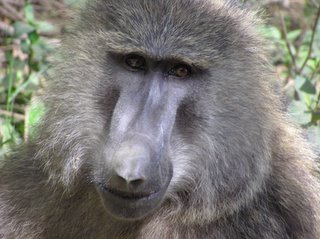Buddha’s Enlightenment DayBy Barbara G. TaylorWhat do Buddhists do when their neighbors are opening Christmas, Chanukah and Kwanzaa presents? When they are celebrating Diwali, observing the fast of Ramadan, or lighting the Yuletide fires? Like adherents of most of the world’s other spiritual traditions, Buddhists, too, celebrate a major holiday near the time of the winter solstice. And their holiday even includes a star shining in the East. Buddha’s Enlightenment Day commemorates the result of Shakyamuni Buddha’s search to understand himself, and is considered the most important day of the Buddhist year. During the week preceding the celebration, which is observed on or around December 8th, Zen Buddhist monasteries throughout the world hold their most intense retreats, with some practitioners abstaining from sleep for the entire seven days. But even such strenuous practice is a really just a shadow, a small reminder, of what the Buddha experienced.
Shakyamani Buddha is the historical Buddha, Siddhartha Gautama, who lived in the 6th century BCE. Born to an extraordinarily wealthy and privileged family, actually raised to be a king, he spent his childhood, youth, and young adulthood surrounded with beautiful objects, sweet smells, lovely sounds and luscious tastes, dressed in the finest garments, waited upon by servants, protected from harm and sheltered from anything that was difficult, ugly or unpleasant. His life was an enviable one; he lacked nothing, wanted nothing that youth and wealth could supply, including a lovely wife and delightful children. But despite all these pleasures and privileges, he longed to see the world outside his palace walls, the world from which his family, with all its good intentions, had tried so hard to protect him.
Siddhartha Gautama left the palace, and immediately encountered three things that he had never seen before. He saw an old woman, wrinkled and frail, with trembling hands and legs that would barely support her, with cataracts in her eyes. Next, he saw sick people, suffering from painful, incurable illnesses, covered with sores and vomit, and others with injured bodies, infected wounds and broken bones. And, finally, he saw people carrying a corpse, their beloved husband, friend and father, taking him away to burn on a funeral pyre. Suddenly, Siddhartha Gautama realized that all life is suffering. And he could not understand why.
Bewildered, he removed his silken clothes, abandoned his rich possessions, his family and all that he had known, and went out into the new and unfamiliar world that he had just discovered, seeking to learn what it means to be human. He wandered as far as his feet would carry him, wondering “What is human life?” and “Why do humans suffer so?” Eventually his question grew so large and overwhelming that he could focus on it alone. He spent six years sitting under the Bodhi tree, never sleeping, barely eating, only asking, “What am I?”
And then, one day, after he had sat for all those years in meditation, suddenly he saw the morning star, shining in the Eastern sky. And he attained enlightenment.
At that moment, Siddhartha Gautama became the Buddha. The word “Buddha” in Sanskrit means simply an awakened one. How did he do it? How did he attain enlightenment? He only saw the morning star.
You, too, can wake up.
To study the way of the Buddha is to study oneself.
To study oneself is to forget oneself.
To forget oneself is to be enlightened by everything.
Barbara Taylor and her lovely husband, Jim Jackson, tend The Morning Star Zen Center in Fayetteville Arkansas.
 " . . .Let us remember that there are multiple theories of Intelligent Design. I and many others around the world are of the strong belief that the universe was created by a Flying Spaghetti Monster. It was He who created all that we see and all that we feel. We feel strongly that the overwhelming scientific evidence pointing towards evolutionary processes is nothing but a coincidence, put in place by Him.
" . . .Let us remember that there are multiple theories of Intelligent Design. I and many others around the world are of the strong belief that the universe was created by a Flying Spaghetti Monster. It was He who created all that we see and all that we feel. We feel strongly that the overwhelming scientific evidence pointing towards evolutionary processes is nothing but a coincidence, put in place by Him. 










